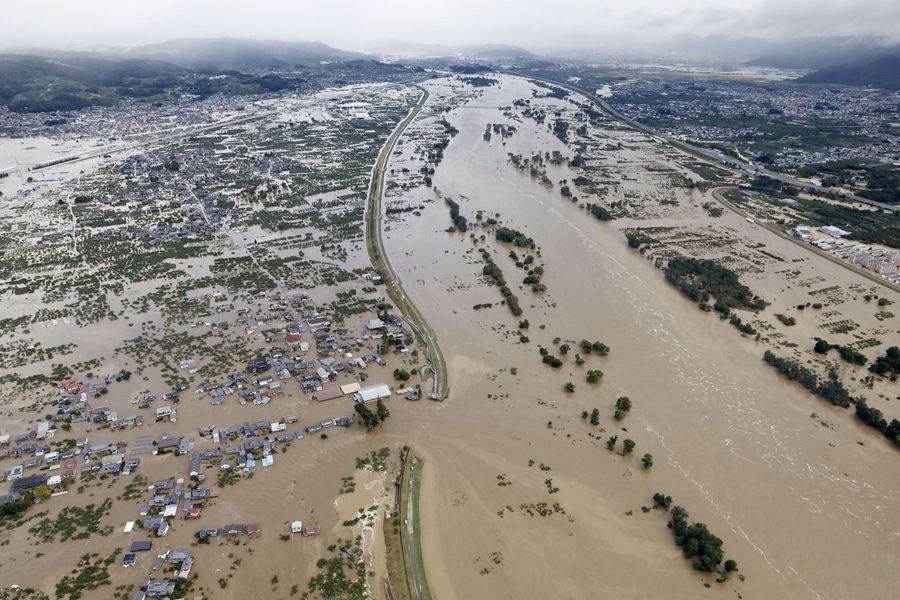
Aerial photo taken on Oct. 13, 2019 shows flooded river overflowing into residential areas in Nagano, Japan. (Kyodo News via Xinhua)
At least 35 people have died, and another 17 missing on Sunday as Typhoon Hagibis ripped through Japan including the Tokyo metropolitan area, causing huge blackouts and river bank collapse.
TOKYO, Oct. 13 (Xinhua) -- Typhoon Hagibis ripped through Japan during the weekend, bringing heavy downpours and strong winds and killing at least 35 people.
When the powerful typhoon made landfall on the Izu Peninsula on Japan's main island of Honshu at around 7 p.m. local time Saturday, it lashed through Tokyo and another 11 prefectures, causing huge blackouts and river bank collapse.
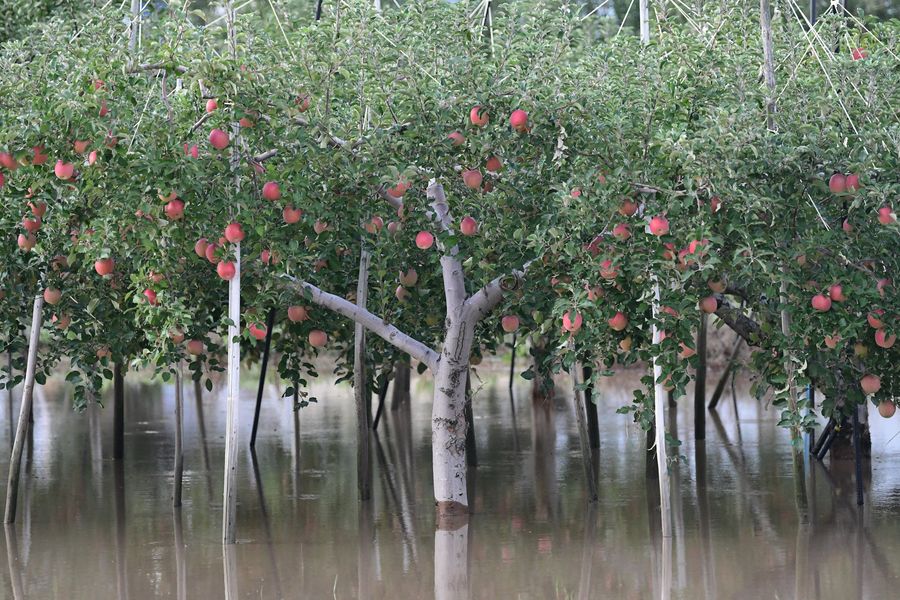
Apple trees are flooded after the bank of the Chikuma River collapsed in Nagano Prefecture, Japan, Oct. 13, 2019. (Xinhua/Hua Yi)
So far, 17 people are still missing while more than 100 were injured, according to information provided by rescuers and authorities.
The government issued high-alert heavy rain warnings in Tokyo and 12 prefectures on Saturday, and advised residents living in dangerous locations to move into shelters. People in Tokyo were advised to stay at home during the weekend.
"When the typhoon reached Tokyo area, I can hear the huge winds pounding on my windows. I definitely would not want to be caught up in such weather and bought enough food and water for the weekend to stay at home," said Ms. Yukiko living in Tokyo's Chiyoda ward.
"At one time, I can hear the wind roaring through the ventilation system in my house," she said, referring to when the wind sped up at 43.8 meters per second.
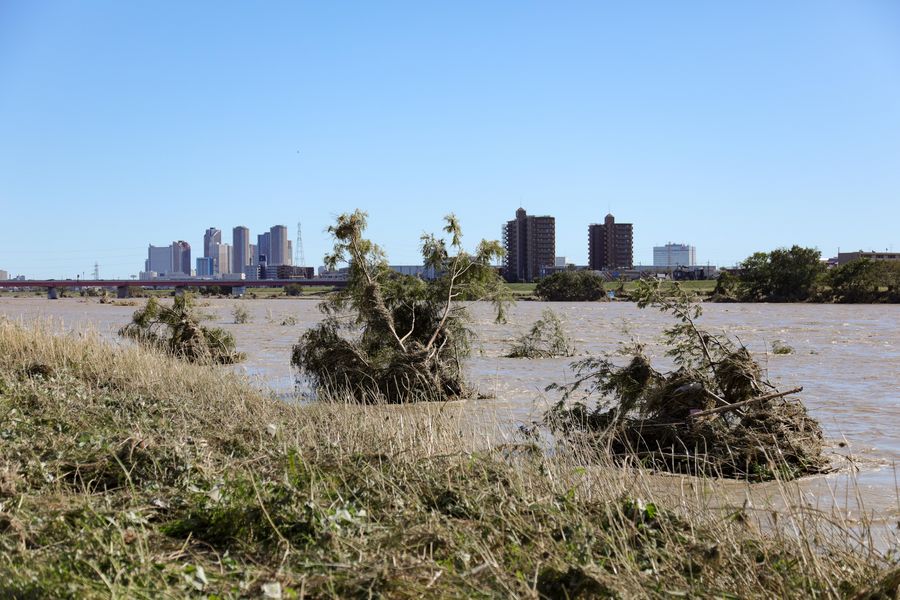
Photo taken on Oct. 13, 2019 shows trees swept down by the flood in Tokyo, Japan. (Xinhua/Ma Caoran)
"I came to my balcony and had a peek at the pouring rain. It was too heavy I could not stay for more than a few seconds. And the wind had a howling sound," said Ms. Kou who lives in Tokyo.
A crane parked at a construction site in Tokyo's Shibuya ward was bended when the typhoon hit and was removed Sunday morning when things quiet down.
Li Jing-yo, a Korean businessman living in Tokyo, said he checked his apartment after the typhoon passed on Sunday and saw his balcony glass was shattered, possibly hit by a flying brick. But he said he was glad that the typhoon passed without major damages in Tokyo.
Some other prefectures were not so lucky compared to Tokyo and suffered multiple deaths and damages.
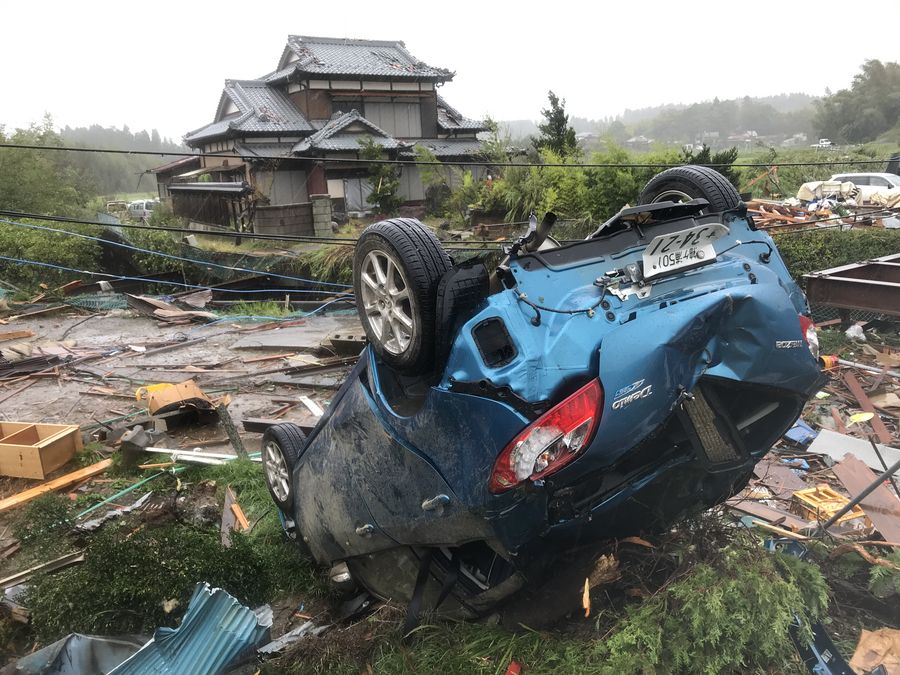
A car is overturned after a tornado hit Chiba Prefecture near Tokyo, Japan, on Oct. 12, 2019. (Xinhua/Deng Min)
Local officials of Chiba Prefecture said a man in his 50s was found dead as his car was overturned by a tornado formed during the course of the typhoon.
In Gunma Prefecture, four people died after houses were swept away by a landslide, according to the police. In Kawasaki, southwest of Tokyo, a man in his 60s was found in an inundated apartment and confirmed dead at a hospital.
Nagano Prefecture was one of the hardest-hit areas as the bank of the Chikuma River collapsed, causing massive flooding in residential areas and stations.
Ten rows of bullet trains parked at East Japan Railway Co.'s railyard near Nagano Station were also seen engulfed by floodwater. The blue trains lining together were submerged in the muddy water. The company said 10 trains, with a total of 120 carriages, have been confirmed damaged.
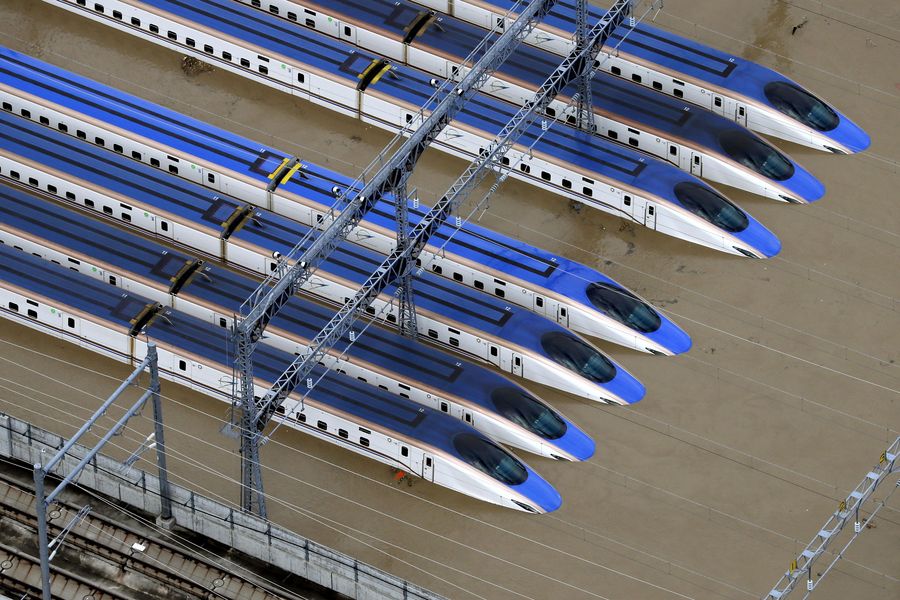
Aerial photo taken on Oct. 13, 2019 shows the flooded Shinkansen bullet trains in Nagano, Japan. (Kyodo News via Xinhua)
"Water suddenly came from under the floor," 72-year-old Shogo Kasama living in Marumori, Miyagi Prefecture told local media. He protected himself by standing on a table after his house was inundated up to two meters.
Kasama said that his 92-year-old bedridden mother managed to keep alive as her bed floated on the water. "The flood cut off roads and I can't even take her to hospital."
Some 27,000 members of the Self-Defense Forces and a number of helicopters have been dispatched to the stricken regions for rescue operations.
A 77-year-old woman in Fukushima Prefecture died after she fell about 40 meters while being hoisted by helicopter. Her rescuer failed to properly attach a hanger to her harness.
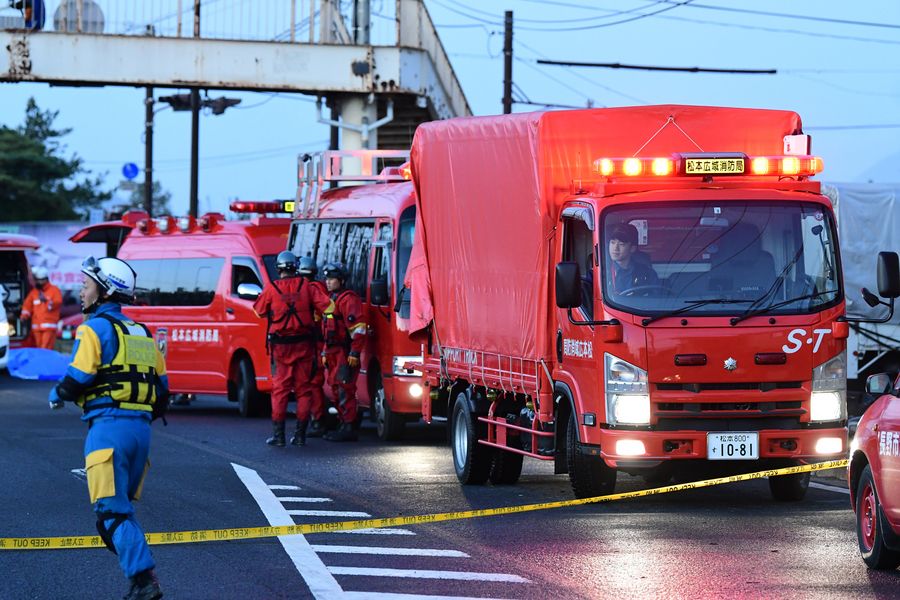
Policemen and firefighters participate in rescue and relief operations in Nagano Prefecture, Japan, Oct. 13, 2019. (Xinhua/Hua Yi)
Typhoon Hagibis also caused an almost complete halt to events in Japan.
On Sunday, the Rugby World Cup match between Namibia and Canada in Kamaishi, northeastern Japan, was canceled to ensure the safety of players and fans. Two matches on Saturday were relocated to be held in Aichi Prefecture to avoid the direct hit of the typhoon.
Most department stores, supermarkets and so on in Tokyo area were closed on Saturday. Many shops and convenience stores did not open until 2:00 or 3:00 p.m. Sunday.
Shinkansen bullet train service between Tokyo and Nagoya was suspended on Saturday. East Japan Railway Co. suspended its Tohoku and Hokuriku shinkansen services and halted train operations on Saturday afternoon after gradually reducing train service in the Tokyo metropolitan area.
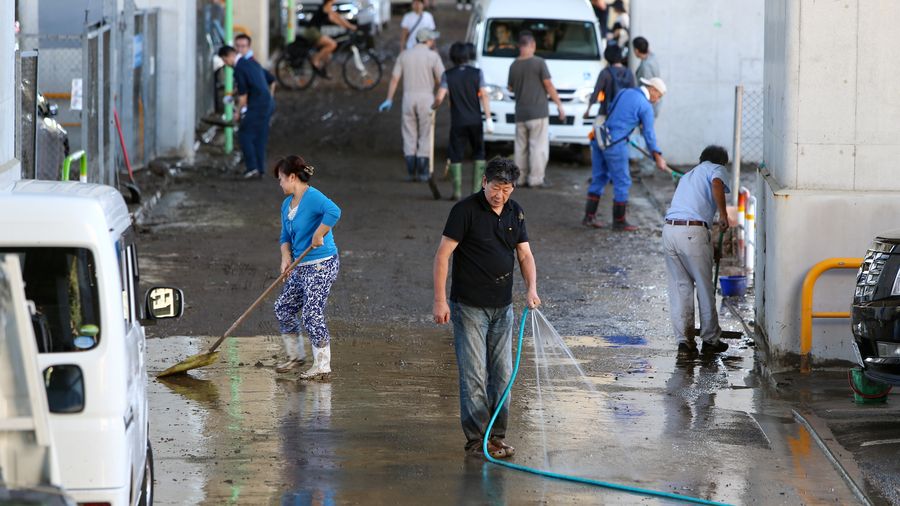
Residents clear the road after the flood in Tokyo, Japan, Oct. 13, 2019. (Xinhua/Ma Caoran)
As most of the flights were cancelled on Saturday and Sunday at both airports in Tokyo, many with a traveling plan got stranded.
"My schedule was greatly affected by the typhoon. My flight to Shanghai was cancelled and I got delayed for one day plus ten hours," said Qi Yanggang, a Chinese businessman who originally planned to fly on Saturday morning. "Now I have a new problem. I cannot reach the next stop because it will be very late when I get off the plane," he said.■



